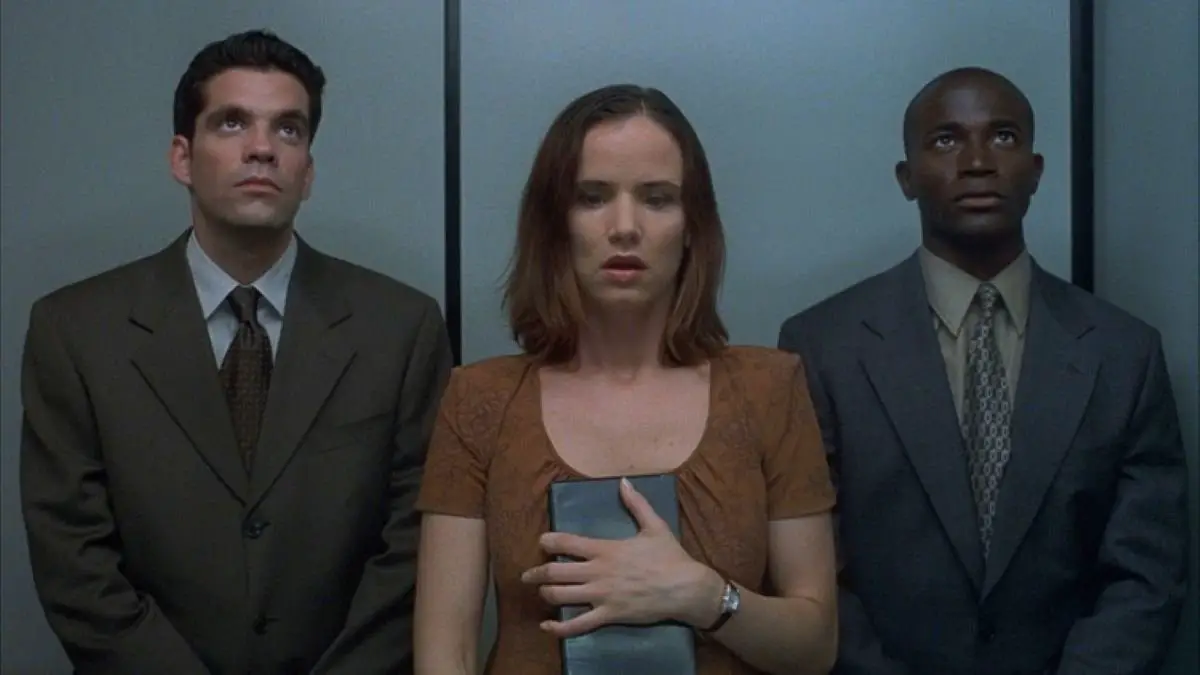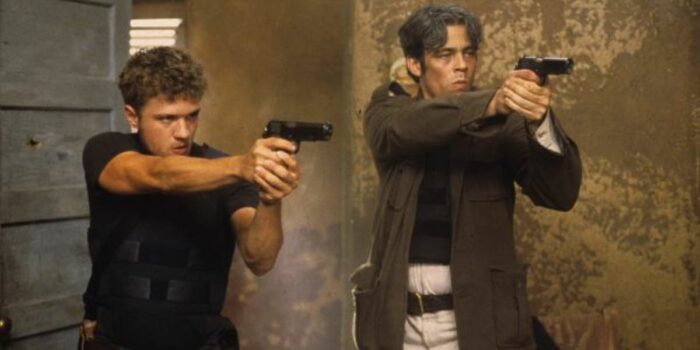Unfortunately, we live in a time when a whole body of impressive work has been rendered unwatchable thanks to the “Me Too” scandals that rocked Hollywood a few years ago. Gone are the days where we could watch American Beauty (1999) for the masterpiece of acting and performance it once was, and a whole raft of solid independent cinema produced by Harvey Weinstein is now tainted forever. Perhaps the film which has been most affected by this is The Usual Suspects (1995). Back in the ’90s this was seen as an indie masterclass of writing, direction, and performance. Now because it has Kevin Spacey in the role that broke him out, and is directed by Bryan Singer, it’s impossible to view it as favourably as we once did.
Thankfully emerging from that mess unscathed was Suspects screenwriter Christopher McQuarrie. McQuarrie has recently become the guiding light behind the Mission: Impossible franchise, making the last two instalments the peak of the series thus far. Although miscast, he also brought us the entertaining Jack Reacher, and that had much of what made his largely forgotten directorial debut so damn cool.
The Way of the Gun (2000) was one of those independent crime films financed and released thanks to the post Tarantino, post Usual Suspects craze for films of this type. It came at the end of this particular cycle as Hollywood was about to get comic book crazy. A little-known secret is that The Way of the Gun is the best of these Tarantino cash in’s. It’s a film that walks its own path, and is far more indebted to the cinema of the ’70s than anything more recent.
We begin our film following drifters Parker (Ryan Philippe) and Longbaugh (Benicio Del Toro) (the real-world names of Butch and Sundance) as they engage in petty crime and live simply. Whilst donating semen they overhear of a surrogate mother named Robin (Juliette Lewis) who is being paid a million to carry the child of mobster Hale Chidduck (Scott Wilson). Parker and Longbaugh decide to intercept the heavily guarded Robin and kidnap her to ransom the unborn child and make their fortune. A bloodbath ensues, but they manage to succeed in kidnapping her, bringing them to the attention of deadly ‘Bagman’ Joe Sarno (James Caan). Loyalties are tested, double-crosses occur, and there are lots and lots of dead bodies.

Despite one of the best Limp Bizkit soundtracked trailers of recent times, and coming from the post-Blair Witch Project (1999) studio Artisan Entertainment, The Way of the Gun made only 13 million worldwide when it was released in the fall of 2000. The reviews were mixed, and it wouldn’t really find its small band of loyal supporters until it came out on DVD in 2001.
Christopher McQuarrie’s film is different from all of the other Tarantino clones of the time for two simple reasons, style, and execution. McQuarrie wastes no time putting you right in the crosshairs of a legion of scumbags. The first scene sees Ryan Philippe’s Parker calling Sarah Silverman the C word and punching her several times outside a nightclub. This may well have led to several walkouts and refunds at the box office. We then cut to good old-fashioned white text on black background credits and Joe Kraemer’s frankly amazing score. A voiceover then tells us all we need to know about Parker and Longbaugh. They have stepped off the path and rejected all that society expects them to do. Yet they listen, they watch and they look for the opportunity to grab that elusive American dream. Although these two are morally repugnant, you are absorbed by their tale. Philippe in particular shows a charisma and toughness that makes it curious why he didn’t end up the next Ryan Gosling before there was a Ryan Gosling.
McQuarrie doesn’t try and ape Tarantino pop culture dialogue or even Usual Suspects’ own noirish portents of doom. The dialogue in The Way of the Gun is kept to a minimum, allowing Kraemer’s score to fill the void with atmosphere. Parker and Longbaugh barely speak to each other, saying a lot through facial expressions and gestures and only really communicating when cracks begin to show in the tough-guy façade and an opportunity for redemption occurs. Having said that there is still a tremendous talent for writing on full display here. Lines such as “There is always free cheese in a mousetrap” or “A plan is just a list of things that don’t happen” have made their way into my everyday speech for years now, and the film has a dark sense of humour all its own.
In the DVD commentary, Christopher McQuarrie laments the tepid reception to the film by highlighting some of its flaws. The first is the pacing, that slows right down after the initial kidnapping. The second is that not all of the character motivations and relationships are clear enough. I believe this is the director being too hard on himself, as both of these things are part of what makes The Way of the Gun so unique. The pacing does flag it’s true, but it gives way to the introduction of all of the main players in the carnage to come. We learn about these people in clipped conversations, characters always about to reveal something and then stopping themselves. McQuarrie is asking you the audience to fill in the blanks about whose daughter Robin is, and why she is doing what she is doing. The answers are all there, it just requires a degree of attention from the audience.

After the impact of the ultra-realistic gun battle in Michael Mann’s Heat (1995) it’s astounding that this kind of realism didn’t catch on in cinema for a while. McQuarrie’s brother Doug McQuarrie was a former navy seal who helped choreograph Heat’s pivotal scene and he was brought on to The Way of the Gun to do a similar thing for its gunplay. As a result, each scene involving guns involves accurate stances, accurate loud noises, and pulse-quickening movements. Scenes which could have been just another gun battle have added momentum and are frankly incredible. The finale is a wild west style extended battle in Mexican border brothel, bag men everywhere, and is tense, tragic and perfect. It’s something you have seen before and yet not ever done quite this way.
Despite being quite well-liked these days by those that saw it, The Way of the Gun remains largely forgotten. There isn’t really much in the way of a special edition Blu-Ray or 4k version out there as there isn’t much demand. It’s a film ripe for rediscovery now where audiences are generally given more credit for being able to work things out on their own. It even has a whole subtext about the cycle of death and re-birth in there somewhere, with its McGuffin of an unborn baby and its grizzled veteran bagmen at odds with their younger counterparts. If nothing else it’s an example of what post-Tarantino cinema was capable of when it had genuine talent behind it, and not just merely trying to cash in with pop culture dialogue and snappy soundtracks.


